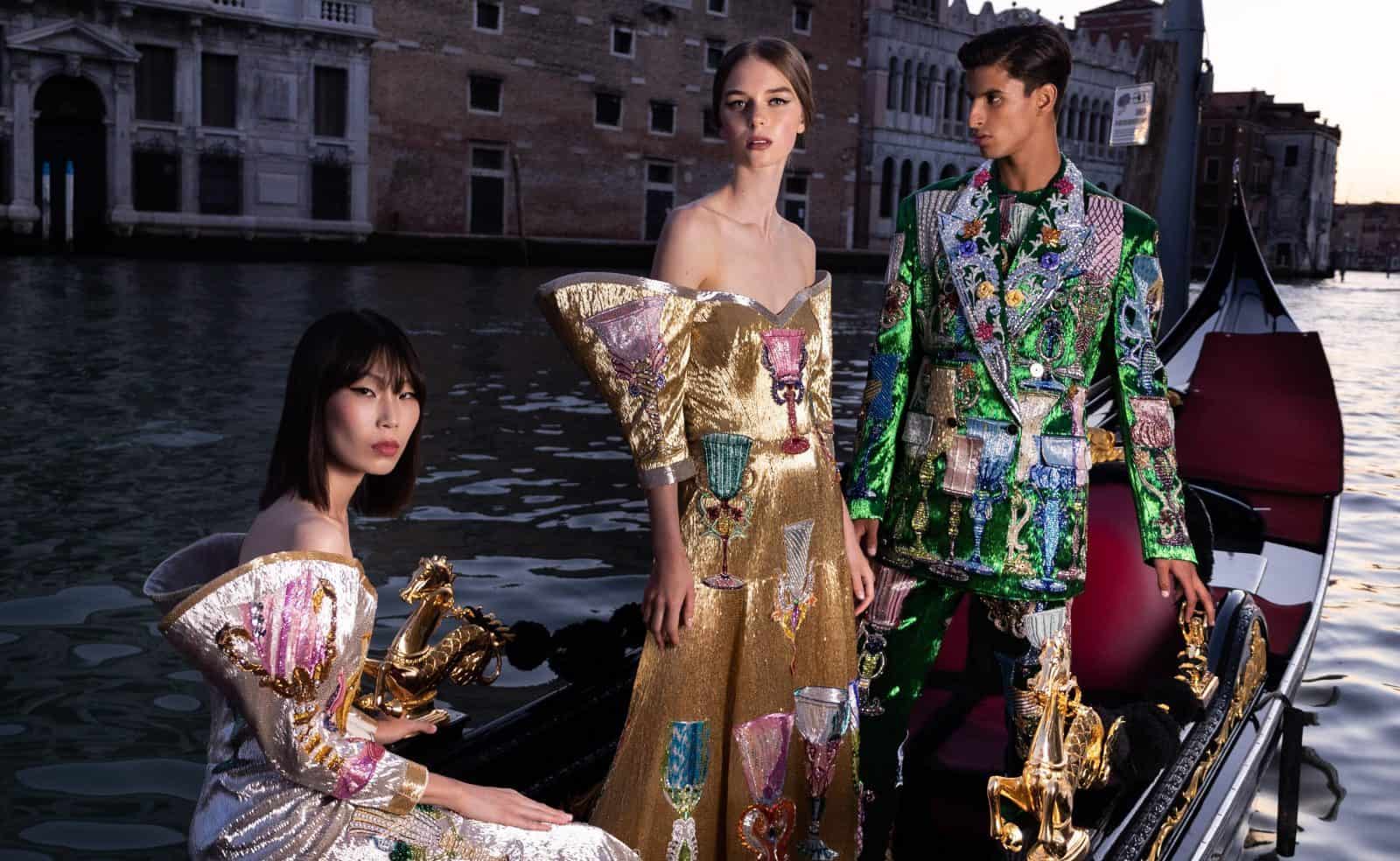The Metaverse has succeeded in drawing a lot of attention to itself. But while it is still developing there is considerable excitement about its potential and the opportunities it may provide for businesses and the fashion industry.
TRENDS spoke to Nick Vinckier, head of Corporate Innovation at Chalhoub Group, to understand how the technology is spreading and the kind of impact he feels it will have on business and life.
However, what do fashion companies need to know to tap in? And what role will Nonfungible Tokens (NFTs), gaming, and virtual fashion play in the future of shopping?
“We’re seeing a lot of fashion brands and luxury branding entering the metaverse”, said Nick Vinckier, Head of Corporate Innovation at Chalhoub Group, however few are testing this world, and the acceptance is still quite slow as this technology is still very new especially when it comes to NFTs.
Vinckier told TRENDS that today’s brands entering this world want to add a virtual layer to their physical goods.
For example, when you buy any item right now, you just sell it once, and that’s it, but with a virtual layer attached to it, you can create a digital twin of this product where you can not only overlay this product with virtual skins, but you can customize it entirely into any gaming environment, any social network, any VR environment.
“We haven’t seen a single brand undertake it, but I believe that is the direction we are heading in.”
Vinckier noted that there is a second part to why the metaverse is so wonderful for fashion and luxury brands: the NFTs certificate.
“Luxury customers would undoubtedly profit from this, as retailers will be able to include a transparent year of transaction production history, manufacture history, maintenance records, and so on.”
So, if you buy a $50,000 watch or a $25,000 bag today, you buy it in the store, keep it, and then resale it later, but the buyer should trust the vendor when he says that this item is authentic. This item’s NFT certificate symbolizes the digital twin of the actual item. Any time the customer returns to the dealer or the brand for certified maintenance, they can check the blockchain file that comes with the actual products. Whenever the buyer wants to resell that item, you as the consumer may also request that the NFT be transferred.
This creates an uneditable chain of transactions in which a new or prospective buyer of an item can see precisely what has occurred and ensures the source of this item.
Furthermore, the Vinckier and Chalhoub Group believes that the metaverse world will aid the fashion sector in its quest for sustainability.
“Today, fashion is one of the most polluting businesses, and we are quite aware of this, so we are investing heavily in sustainability. Group and I believe that virtual fashion and technologies will enable us to reduce our carbon footprints and the strain we place on our planet,” he explained.
“People love their digital copies of themselves just as much as their physical ones, yet we’re not investing in virtual fashion today. Only a small percentage of people are investing. If you look at the gaming segment, the gaming audience is already spending a lot of money on skins, clothing, and other accessories to customize their avatars. Still, I believe that as time goes on, more and more people will begin to experiment with virtual fashion for their Instagram pictures, Snapchats, TikTok, and so on”.
The second factor in terms of sustainability is that fashion firms can design a new digital fashion collection for the audience, which they can show and launch in the virtual domain on virtual models without producing additional waste and clothes. People can then click the buy button for the item they purchased, and the brand will design and make it, and we will only go for one-to-one production of what you desire.
“I believe that cutting out all waste in the future will be the future of fashion,” he said.
Implications and challenges
Despite the benefits of the metaverse world to the fashion industry, Vinckier believes that this technology is still in its early stages.
“I believe that brands must be cautious in what they do and should be aware that a community is highly skeptical and critical of it. And if you’re looking to make a quick buck, expect a lot of reaction. Brands should truly understand the technology and build some form of the concept of what this might imply for them in their long-term vision.
Brands should also be cautious of many scammers in this world, Vinckier advised. “There are numerous grabbers and a lot of fraud going on. So, brands should always look at how to keep themselves safe online. So, I believe we are currently at that moment where businesses are experimenting and must be extremely cautious,” he said.
How the future will look like
For the time being, digital fashion is primarily utilized as a marketing strategy by fashion brands to direct attention to actual goods.
Fashion and brand retailers, according to Vinckier, are overestimating what the metaverse will do in the short term while underestimating what it will do in the long term.
So, in a nutshell, he feels that many brands will try, fail, and then give up right now; but instead of giving up after one or two attempts, they must learn from them and grow on top of them.
“The top developers who are already developing innovative solutions will be the future. However, predicting what the future will look like right now is hard and challenging,” he ended.








